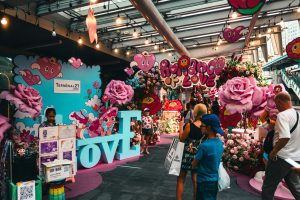Retail for Different Value Systems: Aligning Purchases with Beliefs
In today’s consumer-driven society, people are constantly bombarded with messages from retailers, encouraging them to buy the latest products and services. However, as consumers become more aware and socially conscious, buying decisions are no longer solely based on prices and convenience. Instead, many individuals are looking for retailers that align with their personal values and beliefs. In this article, we will explore the concept of Retail for Different Value Systems and how businesses can work towards aligning purchases with beliefs.
The Importance of Aligning Purchases with Beliefs
In recent years, consumer values have been shifting towards more socially and environmentally responsible products and services. This trend is not just limited to a specific generation or demographic, as people from all walks of life are becoming more conscious of the impact of their purchasing decisions on the world around them.
As a result, businesses that align with these values are seeing increased success, as consumers are more likely to support and shop from companies that share their beliefs. In fact, according to a survey by Nielsen, 66% of consumers are willing to pay more for products and services from companies that are committed to positive social and environmental impact.
The Role of Retailers in Promoting Different Value Systems
Retailers play a significant role in shaping consumer behavior and influencing purchasing decisions. As such, it is essential for businesses to understand and take into account the values and beliefs of their target audience. By aligning with different value systems, retailers not only attract and retain customers but also have a positive impact on society and the environment.
One of the ways retailers can promote different value systems is by sourcing and offering products and services that are in line with the beliefs of their target audience. For example, a retailer catering to environmentally conscious consumers may choose to stock products made from sustainable materials or offer services that promote waste reduction.
In addition, retailers can also use their platform to educate and raise awareness about important social and environmental issues. This can be done through various channels, such as social media, in-store displays, and partnerships with relevant organizations. By doing so, retailers not only showcase their commitment to different value systems but also inspire and empower their customers to make more informed purchasing decisions.
Challenges in Aligning Retail with Different Value Systems
While aligning purchases with beliefs may seem like a no-brainer for businesses, there are certain challenges that retailers may face in this endeavor. One significant hurdle is the pressure to remain profitable and competitive in a constantly evolving market. Many retailers fear that catering to specific value systems may result in a loss of customers or a decrease in sales.
However, this is not necessarily the case. As mentioned earlier, customers are increasingly willing to pay more for products and services from socially responsible companies. In addition, by promoting different value systems, retailers can tap into a new and growing market of socially conscious consumers.
Another challenge is the lack of awareness and understanding of different value systems. In order to align with these beliefs, retailers need to have a deep understanding of their target audience and the values they hold. This requires research and a willingness to adapt and evolve as values and beliefs shift over time.
Examples of Retailers Successfully Aligning with Different Value Systems
Despite the challenges, many retailers have successfully aligned their businesses with different value systems, and have seen positive results as a result. For example, Patagonia, an outdoor clothing retailer, has consistently prioritized environmental sustainability in its products and practices. This commitment has not only garnered a loyal customer base but has also contributed to the company’s growth and success.
Another notable example is Lush, a cosmetics retailer known for its ethical sourcing and sustainable packaging. Lush’s values and beliefs are evident in every aspect of their business, from the products they offer to their humanitarian and environmental initiatives. This has helped the company build a strong brand reputation and attract consumers who share their values.
Conclusion
In conclusion, Retail for Different Value Systems is becoming increasingly important in today’s consumer landscape. As customers become more socially and environmentally conscious, businesses need to adapt and align with these beliefs in order to remain competitive and make a positive impact on the world. By understanding their target audience, promoting different value systems, and overcoming challenges, retailers have a unique opportunity to become leaders in the promotion of sustainable and responsible practices.





